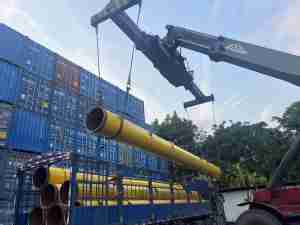Iraq cancels Kirkuk crude cargoes as Kurds sell more
By: Reuters | Jul 07 2015 at 10:13 AM
LONDON - Iraq has told the Turkish port of Ceyhan that all Kirkuk crude loadings are cancelled due to a lack of oil after Iraq’s Kurdistan region ramped up independent sales, a shipping agent said.
Semi-autonomous Kurdistan boosted independent sales in June while cutting allocations to Iraq’s state oil marketing organisation (SOMO) in a dispute over export rights and budget payments. Companies including Eni, Socar, Repsol and BP have cancelled cargoes, according to shipping lists.
“SOMO Baghdad have sent an instruction to the terminal informing that all nominations have been cancelled,” the shipping agent said in a notice to clients.
A trade source said the Iraqi marketer had also contacted cargo lifters to request that cargoes be cancelled, while a second trade source said his company was told there would not be any allocations for the forseeable future.
SOMO did not comment officially, but an oil source in Baghdad said he hoped exports could restart soon.
“Yes there are cancellations - most shipments for the time being, but we hope the export may resume again in the near future,” an Iraqi oil source familiar with the matter said.
Since mid-June, Kurdistan has sold at least 12 million barrels of oil from Ceyhan, according to shipping data and traders, compared to 5 million barrels it allocated to SOMO in early June after which transfers largely stopped.
Kurdistan says it is still committed to a December deal with Baghdad under which it agreed to transfer up to 550,000 barrels per day to SOMO in exchange for Baghdad allocating Arbil 17 percent of the country’s budget payments.
Erbil says Iraq has failed to pay up while Kurdistan’s need for money is especially acute, given the fight against Islamic State militants and the sheltering of a large number of refugees from Syria and Iraq.
Still, loadings of Kirkuk under the SOMO banner may not dry up entirely in July, according to other trading sources.
In June, some 4.5 million barrels of crude from the Kirkuk field have flown into the SOMO tanks, while the rest has been exported by the Kurds independently.
“It could follow the same patterns in July,” one of these sources said.

